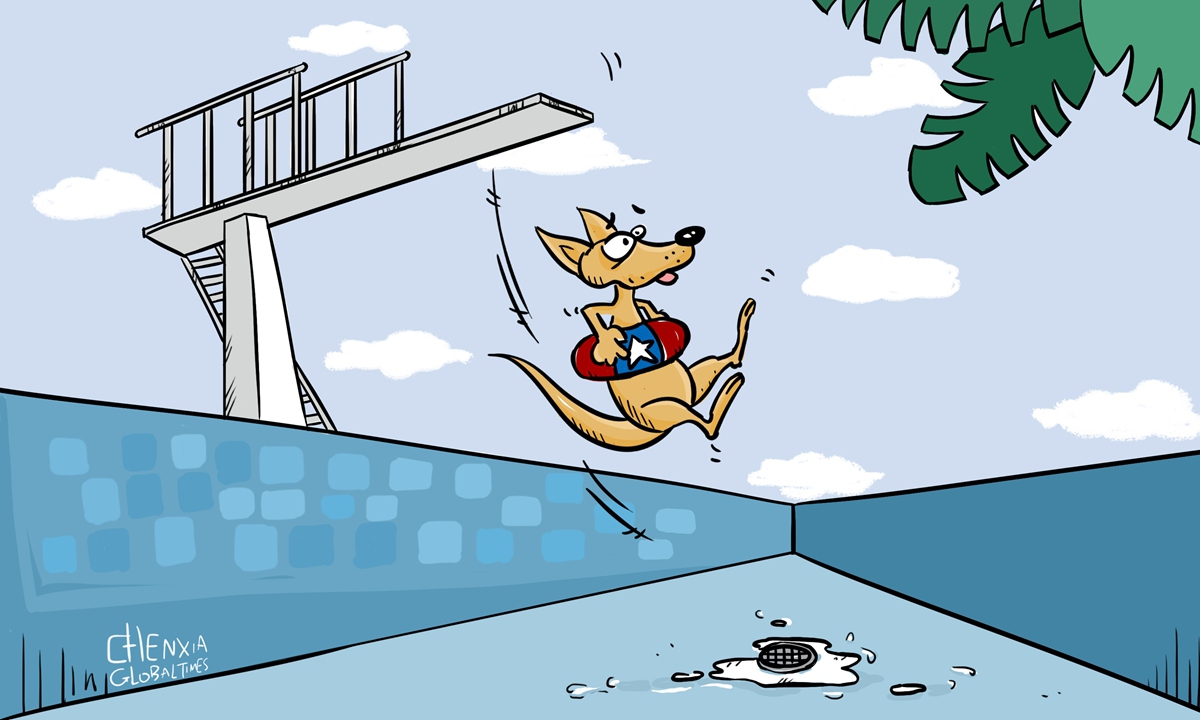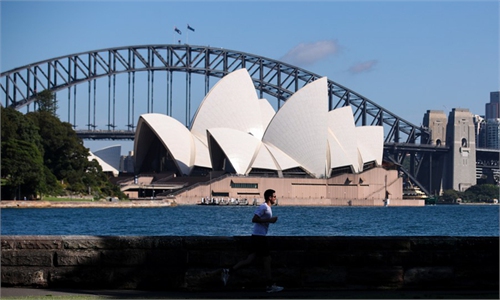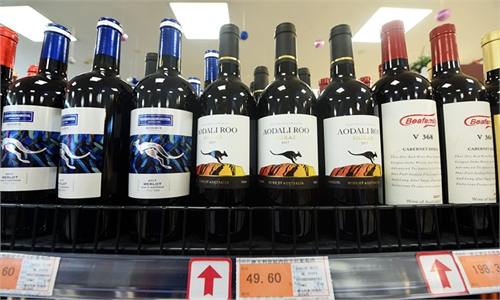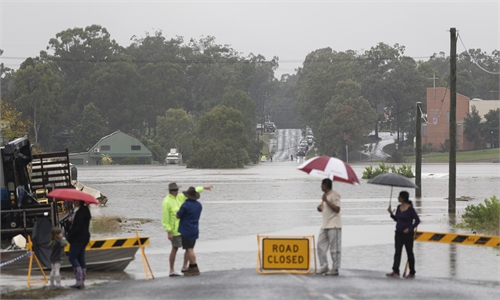
Illustration: Chen Xia/GT
While some in Australia claim to be seeking talks with China to address bilateral trade tensions, ironically those Australians never stop playing political games by insulting China, drifting such a talk further away.Over the weekend, Australian Prime Minister Scott Morrison said the Chinese tariffs on Australian wine are "retaliation," and, quite ridiculously, he asserted that "I stood with UK Prime Minister Boris Johnson" after China took the countermeasures of sanctioning a handful of UK individuals and entities for fabricating Xinjiang's using "forced labor" to pick local cotton.
His remarks came out against the background that China's Ministry of Commerce decided to impose anti-dumping duties ranging from 116.2-218.4 percent on imported Australian wine, starting from Sunday and effective for five years.
It is not the first time that Canberra has accused China's imposing anti-dumping duties as "retribution," while turning a blind eye to illicit trade practices taken by Australian wine companies.
In fact, Australian wine is not as innocent as it sounds. According to an application filed by the China Alcoholic Drinks Association, Australian wine exports to China reached 120,800 kiloliters in 2019, up sharply by 113 percent from 2015. During the same period, the average export price of Australian wine fell 13.36 percent in the Chinese market.
Impacted by cheap wine imports, China's domestic production of similar wine products suffered a significant drop of 61.11 percent, shrinking from 1.16 million kiloliters in 2015 to only 451,500 kiloliters in 2019.
From the initiation of the anti-dumping investigation to the final ruling, every move by China has been based on the comprehensive assessment of objective facts and data. Regardless of whether Australia will take China to the World Trade Organization, China's decision to levy anti-dumping duties is in line with Chinese laws as well as international trade norms.
It is true that China-Australia trade is currently in a downward spiral. But the irony is that the Australian government appears more willing to exploit politics, instead of resolving the real problems.
Since the administration of former US President Donald Trump, Canberra had always followed the heels of Washington politicians and other US allies to smear and insult China. For an example, on Friday, Morrison echoed US Secretary of State Antony Blinken's criticism of China's "economic coercion of Australia." Morrison flattered Blinken, saying that Australia "really appreciates the great support we've had from liberal democracies all around the world. None less so than the United States."
Politicians in Canberra may think they can count on the US and other allies to put pressure on China and address its trade woes, but they are likely to be in for a big disappointment.
Beijing has adhered to an independent foreign policy and China won't budge before foreign pressure, no matter it is from Washington, London, Ottawa or Canberra.
China has been calling on Australia to take genuine measures to rectify its trade problems by stopping dumping its wine and other products to the Chinese market. And, we once again suggest Canberra reflect on its past behavior and stop interfering into China's internal affairs, but regrettably, Canberra has kept resistant to the path of making things right.



